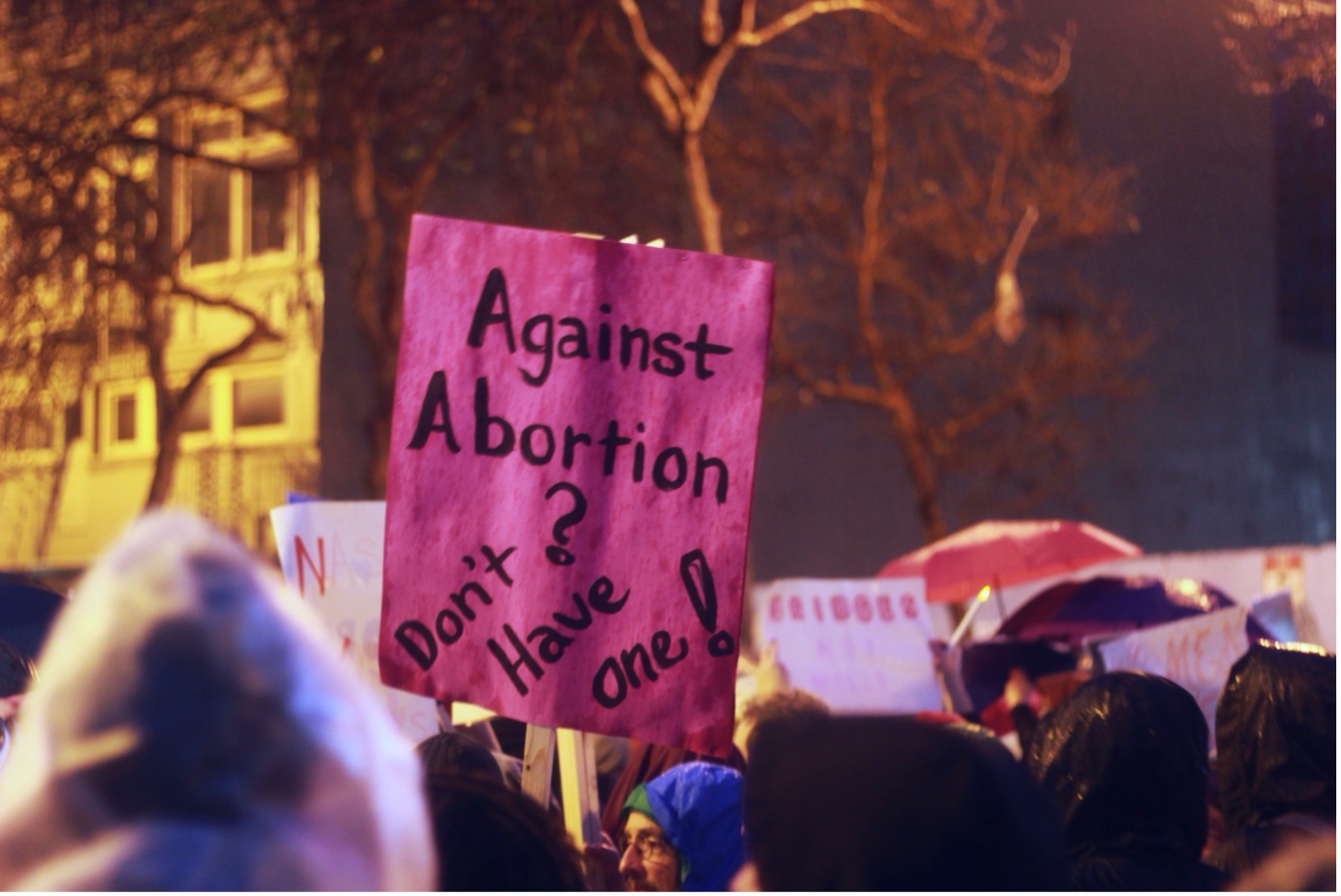
It’s been 54 years since the passing of the Abortion Act 1967 under a free vote which invoked strong moral and political debate. Since then, the right to abortion, whilst still a contentious issue in religious circles in particular, has been more widely accepted as a basic reproductive right. Trump’s term as president of the US and the current composition of the US Supreme Court has sparked fears of a potential overturn of Roe v Wade, and thus the debate on abortion has once again emerged in a violent and confrontational fashion. Visible vocalised support for pro-life campaigns has grown in line with the prevalence of social media – something that is perhaps to be expected – but more worrying is the presence of such groups in educational settings, specifically universities, who are directly targeting those most likely to receive an abortion and fostering a culture of shame and stigma.
Of the UK’s 24 Russell Group universities, 17 have pro-life focussed societies. This represents an upsetting truth, where students who may need access to abortions are associated with institutions affiliated with societies who directly attempt to curb access to such procedures. Sexual health is a major concern for young people – in 2020, 20–24-year-olds made up 31% of new STI diagnoses, a clear demonstration of the importance of access to robust sexual health support systems for those attending university. Sex and relationships are normal, especially in university, and it would be foolish to ignore this reality. Even more foolish is the idea that those who fall pregnant and don’t wish to carry to term shouldn’t be able to terminate that pregnancy in line with their bodily autonomy. Abortion is as important as access to contraception and all other essential healthcare and should be regarded as such.
An estimated 20,000 women die each year as a result of unsafe abortions, a shocking and upsetting statistic that highlights the risk that restricting access to abortion carries. The affiliation of pro-life societies with university guilds and unions is not something that can be ignored. This is not a matter of opinion, or an argument on the parameters of free speech, but a demonstration of the lack of care such institutions often have for their students. The pro-life messages of these societies are threatening and invasive, the dangers of which cannot be exaggerated. A 2013 UN special rapporteur classified lack of abortion access as torture, and whilst pro-life associations don’t have the power to directly restrict access to these procedures, this demonstrates why pro-life messaging is something that needs to be taken so seriously.
The abortion rate in 2020 was highest for 20 year olds, representing a rate of 30.6 per 1000 women. University students are therefore the most likely to receive an abortion. Regardless of considerations over studies and future plans, abortions are something that should be accessible to all those who need them regardless of the reasons. Abortion and reproductive rights are something that have become heavily politicised, and commentary on these issues in the media is stressful enough for those who may need abortions without the added stress of peer groups in educational settings actively campaigning against those rights. These campaigns encourage secrecy surrounding abortion which only serves to feed stigma and undermine the progress that has been made over the last five decades.
Anti-abortion messages spread through groups such as university societies and have the potential to alienate large swathes of student populations. They belittle, shame, and stigmatise those who have sought abortions whilst also potentially encouraging those who may otherwise seek a safe and regulated abortion not to. Research has shown that five years following an abortion, over 95% of women said it was the right decision for them, yet the narratives associated with pro-life movements often stress the supposed danger of regretting termination procedures. This is misleading a form of fear-mongering which may instil unnecessary worries in the minds of those considering an abortion and ultimately cultivate an unsafe environment for those in university who may want to access sexual and reproductive health services.
Cis women, trans man, genderfluid people and many with intersex attributes may all acutely feel the impact of anti-abortion messages and policy. It is not acceptable to showcase these arguments as being rooted in human rights -they’re demoralising and highlight continued efforts to attack already marginalised communities. The solution is simple: those who don’t want abortions don’t have to get one. In attacking those who do and spreading misinformation, pro-life societies have the potential to cause damage to university communities – something that I and thousands of other students feel a responsibility to prevent.



Average Rating